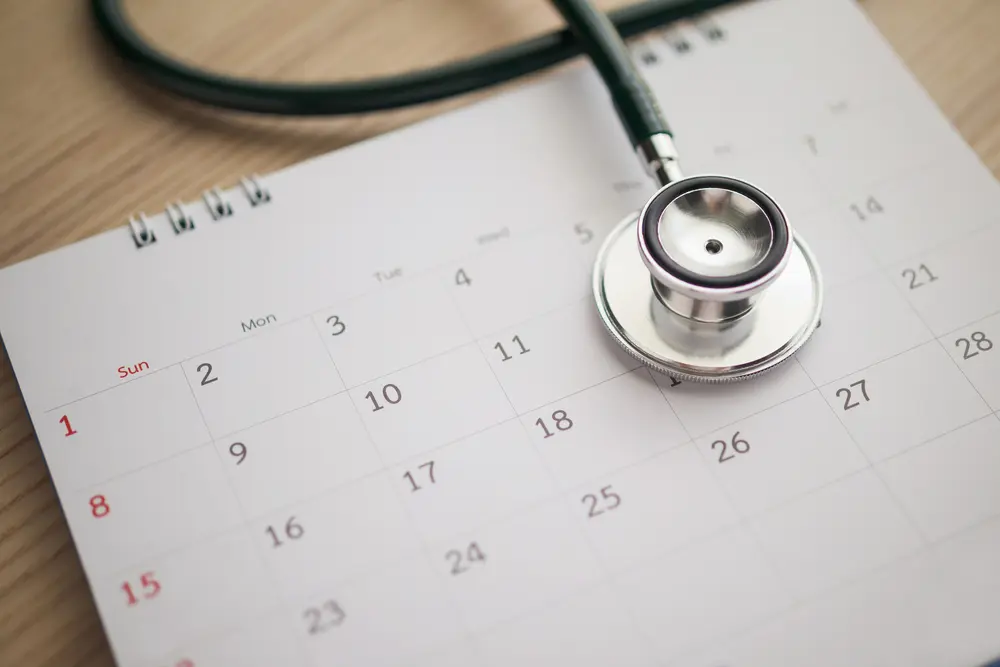
What is Cardiology?
Cardiology is a medical specialty focused on the diagnosis, treatment, and prevention of diseases and conditions affecting the cardiovascular system. This system, comprised of the heart and blood vessels, is responsible for circulating blood throughout the body, delivering vital oxygen and nutrients.
Cardiologists are highly trained medical doctors who specialize in cardiovascular care. They possess in-depth knowledge of the heart’s anatomy, physiology, and the intricate workings of the circulatory system. This allows them to effectively diagnose and treat a wide range of conditions, including heart attacks, heart failure, arrhythmias (irregular heartbeats), and valvular heart disease.

Why is Cardiology Crucial for Heart Health?
The significance of cardiology in preserving heart health cannot be overstated. Cardiovascular diseases remain a leading cause of mortality worldwide, emphasizing the crucial need for specialized care. Cardiologists are at the forefront of combating these diseases, employing their expertise to provide early detection, effective treatment, and comprehensive management.
Moreover, cardiology extends beyond treatment to encompass preventive care. Recognizing the importance of early intervention, cardiologists focus on identifying individuals at risk of developing heart conditions. They achieve this by assessing family history of heart disease, lifestyle factors, and conducting diagnostic tests. This proactive approach allows for the implementation of preventive measures such as lifestyle changes, medication, or other interventions to mitigate risks effectively.
By emphasizing both treatment and prevention, cardiology plays an indispensable role in promoting heart health and improving overall well-being. Regular check-ups with a cardiologist enable early detection, prompt management of existing conditions, and implementation of preventive strategies to minimize the burden of cardiovascular diseases.
Common Symptoms that Require a Cardiologist’s Attention
- When it comes to heart health, certain symptoms should never be ignored. These warning signs may indicate an underlying cardiovascular issue that requires the prompt attention of a qualified cardiologist. Recognizing these symptoms and seeking timely medical care can make a significant difference in your health outcomes.
- Chest pain is a common symptom that can range from a mild discomfort to a severe, crushing sensation. While not all chest pain is cardiac in origin, it's essential to rule out any serious heart conditions.
- High blood pressure, often asymptomatic, can silently damage your heart and blood vessels over time. Regular check-ups are crucial for monitoring blood pressure and managing it effectively.
- An irregular heartbeat, also known as an arrhythmia, can manifest as a racing, fluttering, or skipped beat. If left unaddressed, arrhythmias can lead to more severe complications. By consulting a cardiologist, you can receive an accurate diagnosis and an appropriate treatment plan to regulate your heart rhythm.
Risk Factors for Heart Diseases
Understanding the risk factors associated with heart disease is essential for maintaining optimal heart health. By being aware of these factors and making necessary lifestyle changes, you can significantly reduce your chances of developing cardiovascular problems.
Family history of heart disease is a major risk factor that individuals should be aware of. If you have close relatives who have experienced heart conditions at a young age, you may have an increased likelihood of developing similar problems. High blood pressure, often referred to as a “silent killer,” is another significant risk factor. Even without noticeable symptoms, persistently elevated blood pressure can strain the heart, leading to potential damage.
Lifestyle choices play a crucial role in heart health. Factors such as smoking, lack of physical activity, an unhealthy diet, and excessive alcohol consumption significantly contribute to heart disease risk. By making positive changes to your lifestyle, such as quitting smoking, engaging in regular exercise, adopting a balanced diet, and moderating alcohol intake, you can effectively reduce your risk.
How to Choose the Right Cardiologist at home in Chennai

Selecting the right cardiologist is crucial for your heart health journey. When searching for a cardiologist “near me,” consider factors such as their expertise, experience, and approach to patient care.
Look for a cardiologist who specializes in your specific heart condition or area of concern. Checking their credentials, board certifications, and years of experience can provide insights. Additionally, consider their communication style, ability to listen attentively, and address your questions and concerns.
Factors to Consider When Choosing a Cardiologist
- Start by assessing the cardiologist's expertise and experience. Look for a specialist who focuses on your specific heart condition, whether it's coronary artery disease, valvular heart disease, or heart rhythm disorders. Board certifications, affiliations with reputable medical institutions, and years of experience are indicators of their knowledge and proficiency.
- Equally important is finding a cardiologist who prioritizes patient-centered care. Effective communication is key. You want a doctor who attentively listens to your concerns, thoroughly explains diagnoses and treatment options, and answers your questions in a clear and understandable manner. A compassionate and empathetic approach can make the healthcare experience less daunting and foster a strong doctor-patient relationship built on trust and mutual respect.
- Finally, consider the accessibility and convenience of the cardiologist's practice. Evaluate factors such as location, office hours, appointment availability, and insurance coverage. By taking these factors into account, you can select a cardiologist who meets your individual needs and provides the highest quality care for your heart health.
Preparing for Your First Cardiology Appointment

Walking into your first cardiology appointment can evoke a mix of emotions, from anxiety to hope. Being adequately prepared can help alleviate any apprehension and ensure a productive consultation.
Take the time to gather relevant information, including your complete medical history, a list of current medications (including dosages), and any recent test results related to your heart health. Prepare a list of questions you have for the cardiologist, covering topics such as potential causes of your symptoms, treatment options, and lifestyle recommendations. Remember, clear communication is key to a successful appointment.
What to Expect During the Consultation
During your initial cardiology consultation, the cardiologist will take a detailed medical history, inquiring about your symptoms, lifestyle habits, and any relevant family history. They will perform a comprehensive physical examination, listening to your heart and lungs, checking your blood pressure, and evaluating your overall cardiovascular health.
Depending on your symptoms and medical history, the cardiologist may recommend diagnostic tests to gain a deeper understanding of your condition. These may include an electrocardiogram (ECG) to assess your heart rhythm, an echocardiogram to visualize the structure and function of your heart, or a stress test to evaluate your heart’s response to exertion.
Based on the findings of the consultation and any diagnostic tests, the cardiologist will discuss potential treatment options with you. These may include lifestyle modifications such as dietary changes or exercise, medications to control blood pressure or cholesterol, or in some cases, procedures such as angioplasty or pacemaker implantation. The treatment process is highly individualized and tailored to your specific needs.
Cardiology Services Available at home in Chennai
Chennai boasts a robust healthcare infrastructure, offering a comprehensive range of cardiology services accessible within the city. From routine check-ups to advanced procedures, individuals seeking specialized cardiac care can find it conveniently located. Renowned hospitals and clinics in Chennai house dedicated cardiology departments equipped with cutting-edge technology and staffed by highly skilled cardiologists, ensuring patients receive top-notch care.
Furthermore, Chennai witnesses a rise in home healthcare services, bringing specialized medical care, including cardiology consultations, to the comfort of patients’ homes. This accessibility of services caters to diverse needs and preferences, making it convenient for individuals to prioritize their heart health.
Accessibility and Emergency Care
Chennai’s healthcare system is known for providing care to everyone, especially during heart emergencies. The city has ambulances and hospitals ready to handle heart crises quickly. Experienced doctors and nurses work in these specialized units 24/7 to provide fast and accurate care. They can quickly diagnose issues and use life-saving treatments like medications and surgeries. This dedication to timely care greatly helps people facing heart problems.
In addition to emergency care, Chennai also focuses on preventing heart issues through health camps, awareness programs, and community outreach. These efforts educate people about heart health, encourage healthy habits, and help identify risks early on, leading to a healthier community.
Conclusion
In conclusion, understanding the significance of cardiology in maintaining heart health is crucial. Knowing when to consult a cardiologist based on symptoms and risk factors can be lifesaving. Specializations like interventional cardiology and pediatric cardiology offer tailored care. Procedures such as angioplasty and pacemaker insertion are common interventions.
Choosing the right cardiologist in Chennai involves considering recommendations and reviews. Prepare for appointments by knowing what to expect and asking relevant questions. For ongoing heart health, lifestyle changes play a vital role. Accessible and emergency care services are essential for immediate assistance. Prioritize your heart health by seeking expert cardiology services near you.
Frequently Asked Questions
What are the signs that you should see a cardiologist immediately?
What are the signs that you should see a cardiologist immediately?
If you experience persistent chest pain, irregular heartbeat, shortness of breath, or sudden dizziness, seek immediate medical attention. These could be signs of a serious heart condition requiring prompt evaluation.
How to maintain heart health post-treatment?
How to maintain heart health post-treatment?
Maintaining heart health post-treatment involves lifestyle changes, such as a balanced diet and regular exercise. Adhering to prescribed medications and attending regular check-ups are crucial for long-term well-being.
How often should one undergo heart screening?
How often should one undergo heart screening?
The frequency of heart screenings depends on individual risk factors such as age, family history, and lifestyle. Discuss with your doctor about appropriate preventive care and diagnostic tests to ensure optimal heart health.





Leave a Reply